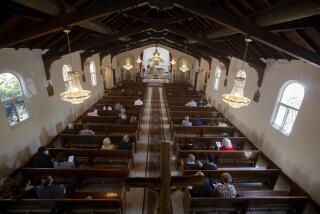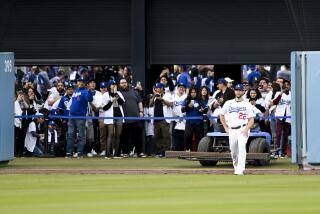After Boston memorial, nonbelievers complain about being left out
Some “non-theist” individuals and groups are aggrieved that not even one seat was reserved for a nonbeliever at the service for victims of the Boston Marathon bombings, despite a request for some recognition from the Secular Coalition for America.
Joined by some Christian and Jewish clergy, they have been circulating a petition calling on Massachusetts Gov. Deval Patrick and Melissa Rogers, the director of the White House Office of Faith-Based and Neighborhood Partnerships, to “meet with the Humanist and non-theistic community to discuss how to ensure that future gatherings like the Interfaith Healing Service after the Boston Marathon bombing include all Americans.”
My first reaction was to concede that the “non-theists” had a point but that their objection was an abstract and self-serving one. They had a point because the service, which was held in Boston’s Roman Catholic cathedral and featured religious leaders from a variety of traditions, was a civic occasion as well as a religious one. And wasn’t it President Obama who said in his first inaugural address that “we are a nation of Christians and Muslims, Jews and Hindus, and nonbelievers.”
At the same time, I thought, it wasn’t surprising that no atheists received VIP invitations to “Healing Our City: An Interfaith Service,” let alone speaking parts in the ceremony. As I had observed in a post about the interfaith service that followed the killing of 20 children in Newtown, Conn.: “Notwithstanding the advent of the ‘New Atheism’ and the decline in church affiliation, the connection between communal mourning and religion remains strong in this country.”
But then I read an essay by Greg Epstein, the Humanist chaplain at Harvard University. Without naming names, Epstein wrote: “When the Boston Marathon bombings took place, many of us in the local Humanist/secular/non-theistic community realized almost immediately that our community would be affected profoundly. And indeed it was.” That suggests that there were real-life survivors of the bombings who might have identified with or been comforted by a “non-theist” speaker at the memorial.If so (as Obama said in another context), that would change my calculus.
Atheists of my acquaintance tend to be individualists, so I’m not sure that there is a “non-theist community” comparable in size to the faithful of any religious tradition. But to the extent nonbelievers do come together to seek solace, they probably ought to be represented at a quasi-official memorial service like the one in Boston -- even if it takes place in a Catholic cathedral.
ALSO:
How not to say the wrong thing
Are the Rolling Stones too old to rock ‘n’ roll?
Queen Elizabeth: Should she stay or should she go?
More to Read
A cure for the common opinion
Get thought-provoking perspectives with our weekly newsletter.
You may occasionally receive promotional content from the Los Angeles Times.











